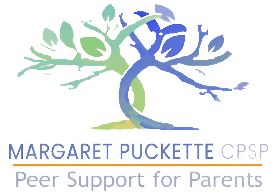
It’s easy to see how siblings are affected, but there’s little information on how to raise well-adjusted siblings in a home with a troubled child. On the one hand, they need to be kids with plenty of love, support, and opportunity. On the other hand, siblings also need to be part of a family team when there’s a crisis. They can’t avoid being involved! I found it necessary to coach the siblings on precisely what to do, with the promise they could be a kid afterwards. I found it necessary to normalize our peculiar family situation to them. We were a ‘normal’ family for families like us.
|
The Siblings’ Bill of Rights
From the Sibling Support Project – a national effort dedicated to the life-long concerns of brothers and sisters of people who have special health, developmental, or mental health concerns. http://www.siblingsupport.org/ |

“Most siblings of people with psychiatric disorders find that mental illness in a brother or sister is a tragic event that changes everyone’s life. Strange, unpredictable behaviors in a loved one can be devastating, and your anxiety can be high as you struggle with each episode of illness and worry about the future. It seems impossible at first, but most siblings find that over time they do gain the knowledge and skills to cope with mental illness effectively. They do have strengths they never knew they had, and they can meet situations they never even anticipated.”
— National Alliance on Mental Illness (NAMI) July 3, 2001 www.nami.org
Sibling quotes – I once asked several young people about their experience living with a brother or sister with a mental disorder, and this is what they said:
“I escaped, I left in my mind. I wouldn’t let anything bother me. I dropped compassion and pretended nothing happened, I tried to forget about my family.” Her sister was diagnosed with schizoaffective disorder at age 15.
“All I did was tried to get away when she blew out. Then I got jealous of all the time my parents spent on her and not the rest of us. Now I just let them handle it and I take my younger sisters away to protect them but they still hear the noise so I help them feel safe, but it’s hard sometimes.” Her sister was diagnosed with bipolar disorder at age 9.
“To me, it was a death. The brother I knew and who was so much like me in so many ways had died, and I didn’t know who this person was who was living in my house anymore.” His brother was diagnosed with schizophrenia at age 18.
Share these messages with your other children. They will probably help them learn to live with or accept their troubled brother or sister:
- “You cannot cure a mental disorder for a sibling.
- No one is to blame for the illness.
- No one knows the future; your sibling’s symptoms may get worse or they may improve, regardless of your efforts.
- If you feel extreme resentment, you are giving too much.
- It is as hard for the sibling to accept the disorder as it is for you.
- Separate the person from the disorder.
- It is not OK for you to be neglected. You have emotional needs and wants, too. The needs of the ill person do not always come first
- The illness of a family member is nothing to be ashamed of.
- You may have to revise your expectations of your sibling. They may never be ‘normal’ but it’s OK.
- Acknowledge the remarkable courage your sibling may show when dealing with a mental disorder. Have compassion, they suffer and face a difficult life.
- Strange behavior is a symptom of the disorder. Don’t take it personally.
- Don’t be afraid to ask your sibling if he or she is thinking about hurting him or herself. Suicide is real.
- If you can’t care for yourself, you can’t care for another.
- It is important to have boundaries and to set clear limits. You should expect your sibling to show respect for others.
- It is natural to experience many and confusing emotions such as grief, guilt, fear, anger, sadness, hurt, confusion, and more. You, not the ill person, are responsible for your own feelings.
- You are not alone. Sharing your thoughts and feelings in a support group has been helpful and enlightening for many.
- Eventually you may see the silver lining in the storm clouds: your own increased awareness, sensitivity, receptivity, compassion, and maturity. You may become less judgmental and self-centered, a better person.”
Excerpted from “Coping Tips for Siblings and Adult Children of Persons with Mental Illness.” NAMI, 2001, www.nami.org


Recent Comments